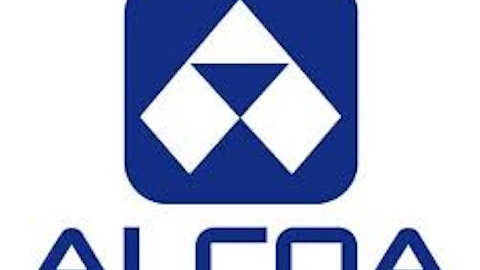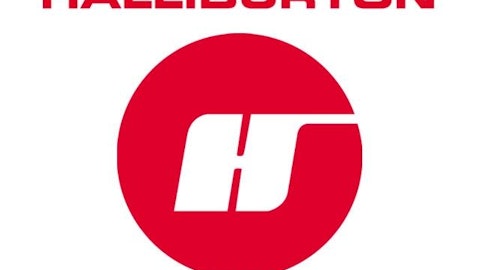According to a filing with the SEC, Jim Kever directly purchased 10,000 shares of Tyson Foods, Inc. (NYSE:TSN) on February 6th at an average price of $23.37 per share. This gives Kever, who sits on Tyson’s Board of Directors, almost 68,000 shares held directly (his spouse and children own a small number of shares) so this recent buy represents a significant percentage increase in his holdings. We track insider purchases because on average stocks bought by insiders tend to outperform the market (read our analysis of studies on insider trading). The effect isn’t very large, but we still think that it is worthwhile to treat insider purchases similarly to the results of a stock screen: don’t follow them blindly but review the stock and do more research if it seems like a good prospect.
Tyson’s stock price is up 17% year to date following an earnings beat for the quarter ending December 2012. During that quarter, increased only slightly but improved operating margins and lower interest expenses helped the company in experiencing an 11% rise in net income. On a segment basis, poor performance in pork was offset by strong improvements in chicken and higher margins on beef. During the quarter, beef, chicken, and pork were responsible for 41%, 35%, and 16% of revenue respectively with the balance of sales coming from prepared foods.
Tyson’s trailing P/E is 14, which we’d say is an attractive earnings multiple for a company which just reported a double-digit earnings growth rate. Wall Street analysts expect lighter growth this year, and then an acceleration for the fiscal year ending in September 2014 resulting in a forward P/E of 10. With the trailing EBITDA multiple also looking good (at 5.5x), we would say that Tyson Foods, Inc. may be worth considering as a value stock given its decent multiple and its moderate growth over the last year.
Cliff Asness’s AQR Capital Management increased its stake in Tyson Foods, Inc. by 43% during the third quarter of 2012, reporting a position of 3.8 million shares in its 13F filing for the quarter (see more stock picks from Cliff Asness). Winton Capital Management, which is managed by David Harding, was also buying shares and closed September with 1.5 million shares in its portfolio (find Harding’s favorite stocks). Adage Capital Management had a small position at the beginning of July and increased it to 3.7 million shares by the end of the quarter (check out more stocks Adage was buying); that fund is co-managed by Phil Gross and Robert Atchinson, who had previously worked at Harvard Management.
A good peer group for Tyson would consist of Pilgrim’s Pride Corporation (NYSE:PPC), Smithfield Foods, Inc. (NYSE:SFD), Hormel Foods Corporation (NYSE:HRL), and BRF Brasil Foods SA (NYSE:BRFS). Tyson is the cheapest of these companies on a trailing basis. Smithfield and Hormel do have trailing earnings multiples of less than 20, but Smithfield’s business has been struggling recently; we’d note that company is more focused on pork products, which we’d mentioned earlier as weakening at Tyson as well. Hormel reported a 13% increase in earnings in its most recent fiscal quarter (which ended in October) versus a year earlier, however, and it might be worth investigating as well. Pilgrim’s Pride is up 61% in the last year as the market expects high growth, and analyst expectations are actually very strong implying a current-year P/E of only 10. It too would be attractive if it hits those earnings targets. Brasil Foods seems like it should be avoided, at least for now, as the company’s net income has been down and even the 2013 earnings multiple is more than 20.
One of the advantages of taking a brief look at stocks bought by insiders is that even a small amount of research can identify whether it and similar companies is actually a value prospect. In this case, we would say that Tyson, Hormel, and possibly Pilgrim’s Pride all qualify. While none is a buy based merely on the combination of valuation and recent growth, we think that any or all of the three could be investigated by a value investor.
Disclosure: I own no shares of any stocks mentioned in this article.






